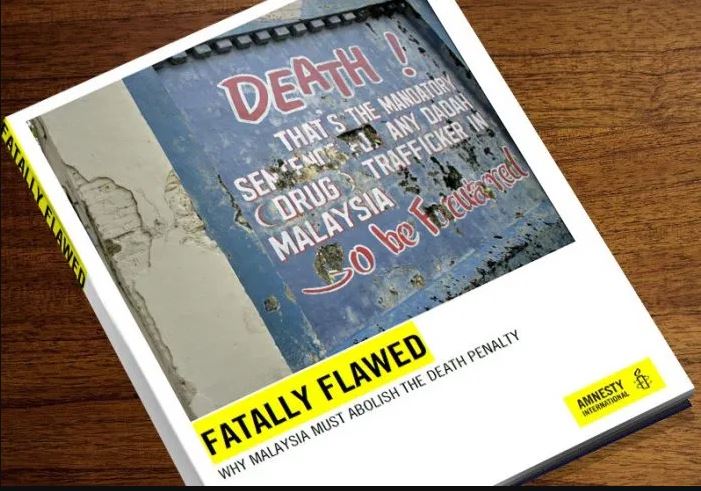Amnesty International (AI) has identified 119 Nigerians among a total of 1,281 persons sentenced to death in Malaysia.
It said the 1,281 death row inmates were being kept in 26 detention facilities across Malaysia. In Malaysia, 33 offences are punished with a death sentence.
The AI report said the 119 Nigerians were convicted of hard drug-related offences. A startling 44 per cent (568) of all those under sentence of death were foreign nationals, from 43 countries.
“Nationals from Nigeria made up 21 per cent of this group, with those from Indonesia (16 per cent), Iran (15 per cent), India (10 per cent), Philippines (eight per cent) and Thailand (six per cent) following suit.
“A significant 73 per cent of all those under sentence of death have been convicted of drug trafficking under Section 39(b) of the Dangerous of Drugs Act, 1952 — an extremely high figure for an offence that does not even meet the threshold of the ‘most serious crimes’ under international law and standards and for which the death penalty must not be imposed,” AI said in the report.
In its report, Amnesty documented many violations of international human rights law and standards associated with the use of the death penalty in Malaysia.
“Our research found a pattern of unfair trials and secretive hangings that itself spoke volumes. From allegations of torture and other ill-treatment to an opaque pardons process, it’s clear the death penalty is a stain on Malaysia’s criminal justice system,” said Shamini Darshni Kaliemuthu, Executive Director of Amnesty International Malaysia.
In July 2018, the Malaysian government established a moratorium on executions, a temporary prohibition that means the convicts won’t have their sentences carried out.
Even though the government previously committed to full abolition of the death penalty, it is expected to soon table legislation in the Malaysian Parliament that’ll remove the mandatory death penalty for only 11 offences.
Amnesty called on the government to completely abolish the death penalty for all crimes and review all cases where people have been sentenced to death, with a view to commuting the sentences.














